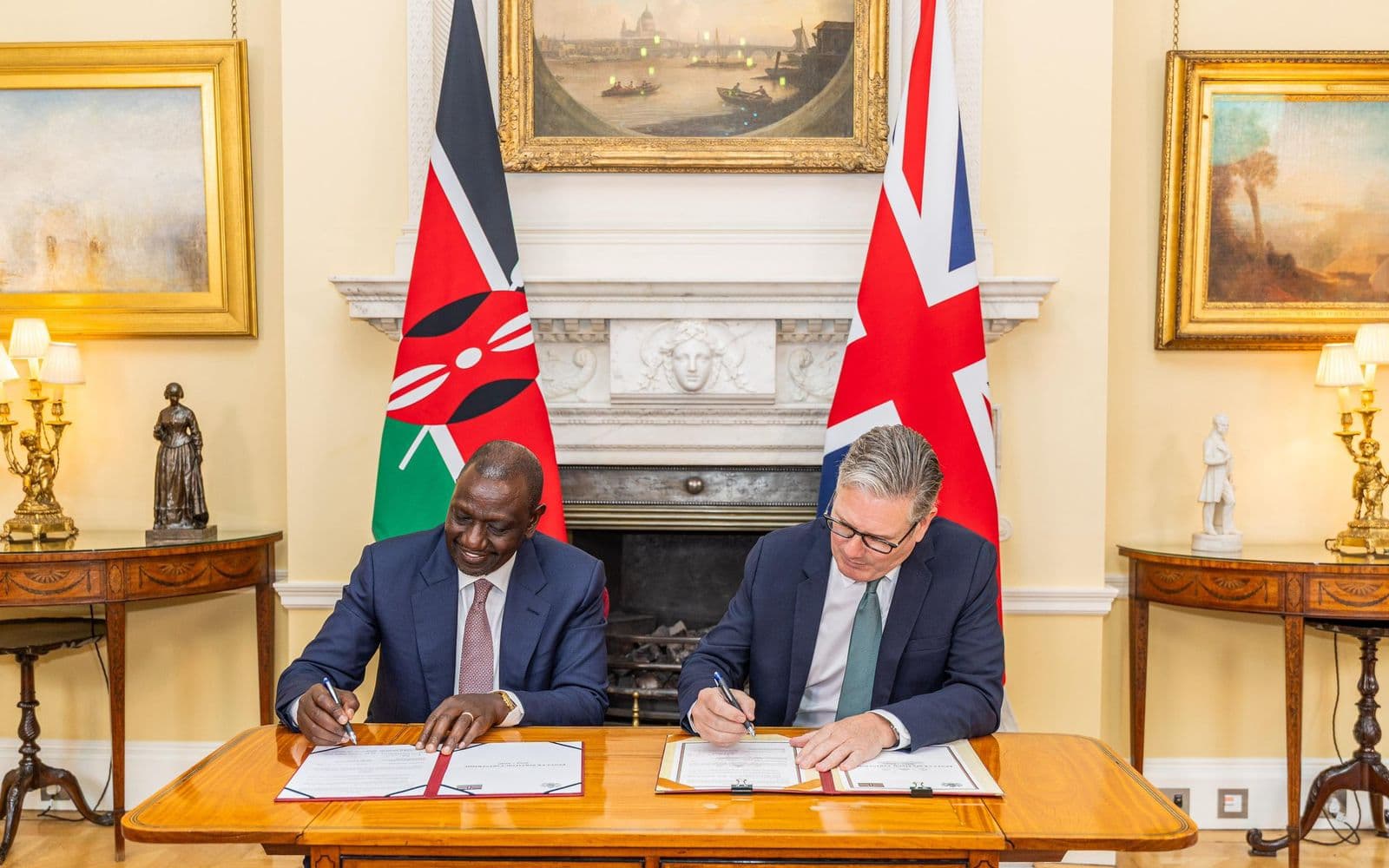We're loading the full news article for you. This includes the article content, images, author information, and related articles.
Bilateral trade surged by 11.9% in the year to September 2025, buoyed by a significant rise in Kenyan exports of agricultural products and a jump in UK machinery and vehicle sales, signaling a deepening economic partnership.

Bilateral trade between Kenya and the United Kingdom has reached a historic high, exceeding Sh340 billion (£2.1 billion) for the first time, according to official data. Statistics released on Wednesday, November 5, 2025, by Kenya's Ministry of Investments, Trade and Industry and the British High Commission in Nairobi show that total trade in goods and services grew by 11.9% in the year ending September 2025.
This record-breaking figure underscores the strengthening economic ties between the two nations, largely driven by a notable 14% increase in Kenyan exports to the UK and an 8% rise in UK exports to Kenya. The data was originally compiled and released by the UK's Department for Business and Trade on October 31, 2025.
During the review period, Kenya exported a combined Sh134.5 billion worth of goods and services to the UK. This included Sh63 billion in goods and Sh71.5 billion in services. The agricultural sector was a primary driver of this growth. Exports of animal and vegetable products recorded the fastest growth, rising by 15.6% to a value of Sh28.7 billion. Following closely were beverages, including Kenya's renowned coffee and tea, which saw a 12.8% increase to Sh24.3 billion.
The surge in exports reflects Kenya's ongoing efforts to expand its international market base through value addition and the promotion of locally manufactured goods. Trade Principal Secretary Regina Ombam stated that the improved statistics highlight a robust and expanding economic partnership. "Sustained collaboration will enhance trade opportunities, diversify exports, and strengthen economic resilience on both sides," Ombam said on Wednesday. She added, "We are propelling our export growth, targeting to increase the product range and market destination diversity, and the data we have seen is a testament to our collective efforts."
On the other side of the ledger, the UK exported goods and services valued at Sh134.6 billion to Kenya, an increase from Sh124 billion in the previous year. The leading UK exports were mechanical power generators, which saw an 18.3% growth, followed by refined oil (12% growth) and cars (10% growth).
This commercial activity is bolstered by the Kenya-UK Strategic Partnership, which was renewed in July 2025. The agreement aims to double the current trade volume by 2030. Dr. Ed Barnett, Chargé d’Affaires at the British High Commission in Nairobi, commented on the new figures, stating, “The UK and Kenya are turbocharging trade. Our renewed Strategic Partnership is already delivering progress in a matter of months.” He emphasized the joint commitment to dismantling trade barriers to foster further growth.
The United Kingdom remains one of the largest foreign investors in Kenya, with approximately 150 British companies operating in the country. These firms are significant contributors to the Kenyan economy, employing over 250,000 Kenyans and ranking among the nation's top taxpayers.
The record trade volume is a positive indicator for the Kenyan economy, reflecting the success of post-Brexit trade agreements designed to secure tariff-free access for Kenyan products to the UK market. The growth in key export sectors like agriculture directly benefits local farmers and producers, creating jobs and bringing in foreign exchange.
However, analysts note the importance of continued diversification. While traditional exports like tea, coffee, and horticultural products remain vital, the government's focus on value addition and branding for locally made goods is crucial for long-term, sustainable growth. The strategic partnership's focus on areas like green energy, technology, and financial services is expected to unlock further investment and create new avenues for bilateral cooperation, supporting Kenya's position as a key economic hub in East Africa.
Keep the conversation in one place—threads here stay linked to the story and in the forums.
Sign in to start a discussion
Start a conversation about this story and keep it linked here.
Other hot threads
E-sports and Gaming Community in Kenya
Active 9 months ago
The Role of Technology in Modern Agriculture (AgriTech)
Active 9 months ago
Popular Recreational Activities Across Counties
Active 9 months ago
Investing in Youth Sports Development Programs
Active 9 months ago